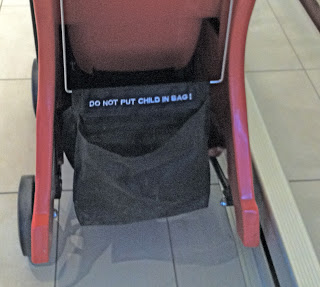Chapter 29: "You're Outta Here!"
These chapters deal with two similar ways of dealing with inappropriate behavior - separation. One (time out) is separating a child within the classroom for a period of time. The other (suspension) is separating a child from the school for a period of time.
I found Dr. Haiman's comments about separation very interesting and thought-provoking. He said that "separation is the worst thing that can happen when a child misbehaves." The time of misbehavior is the time when a child needs to be close, not separated. The time alone can be interpreted by children as rejection, say Daniel Siegel and Tina Payne. Time out or the threat of it can increase stress.
I certainly agree with Rae summarizing statement: "As a blanket strategy, time-outs are overused, misused, developmentally inappropriate, and harmful." I've seen teachers use time-out as a first or only strategy when any misbehavior happens within the classroom.
Suspension can be even greater detriment to kids, especially when used with zero tolerance policies. Zero tolerance allows for no assessing the situation, no teaching or learning opportunities, no accounting for kids being kids. It's more concerned about punishment than discipline (teaching).
What instead? Here are some ideas that Rae includes in her chapters:
--Look for ways to give kids a break when they need it. Keep connected to your kids and look for ways to suggest these breaks before behavior is out of control, allowing kids to use breaks for getting themselves under control.
--Use a "time-in." Sit with the child and talk. This can help a child know what to do next time. Or he can express his frustrations to help you better understand what's happening. (This reminds me of Ross W. Greene's Plan B.)
--Allow several different ways for kids to calm down and encourage them to choose the ones they need.
--Use logical consequences instead of suspensions for misbehavior.
--Get to know kids and parents. Understanding a child's situation can help you know how to handle behavior.
Some links from the book---



























